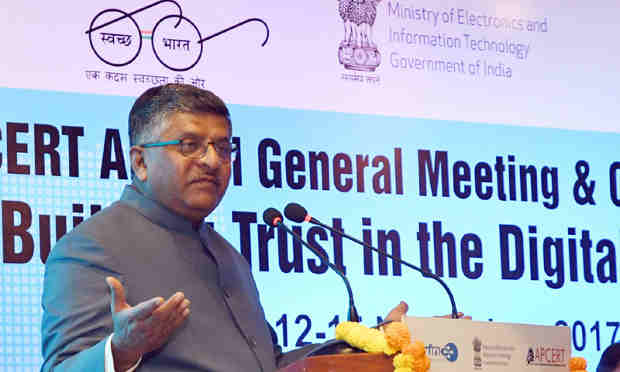How to Build Trust in the Digital Economy

Ravi Shankar Prasad addressing at the inauguration of the open session of APCERT (Asia Pacific Computer Emergency Response Team), in New Delhi on November 15, 2017
The Asia Pacific Computer Emergency Response Team (APCERT) Open Conference was held in New Delhi on November 15, 2017.
It was inaugurated by the Minister of Electronics and Information Technology, Ravi Shankar Prasad in the presence of the Minister of State of Electronics and Information Technology, K J Alphons.
The Indian Compute Emergency Response Team (CERT-In) received the host country award from the APCERT, handed over by Japan CERT (JPCERT).
CERT’s from 22 digital Asia Pacific economies participated along with participation from USA, Europe, Industry, Academia, government and media totalling to over 350 professionals to discuss response mechanisms in the complex and evolving threat landscape for “Building Trust in the Digital Economy.”
[ दिल्ली स्कूल स्टूडेंट्स और माता–पिता का पत्र प्रिंसिपल को – शिक्षा प्रणाली में सुधार करो ]
The minister announced that under the government’s programme of supporting PhD scholars in digital technologies, the government will offer PhD scholarships in cyber security to candidates from Asia Pacific, who do their PhD in any of the 100 leading universities of India, including IITs, IISc and other universities. He invited research scholars to explore doing their research in India.
He also said that the Ministry of Electronics and Information Technology was in the process of working with Data Security Council of India to conduct Challenge Grant for cyber security as a means to encourage budding start-ups to develop innovative technologies.
India was selected to be part of the steering committee of APCERT along with 6 other countries (Australia, China, Japan, Korea, Malaysia, and Taiwan) to shape the agenda for the next 2 years across the region.
Photo courtesy: Press Information Bureau













